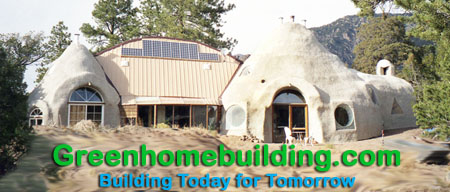
Insurance for Non-Standard Houses
by Jamie Gibbs
A person’s home is their castle, as the saying goes. In some cases, it could be that you actually have a castle, or a similarly unique type of house. Whether you’ve built your own eco-home or you’ve inherited a habitable tree house, you’re still going to need to protect it should something happen to it. For these houses, it’s not as easy as getting a standard home insurance quote online. Thanks to that wonderful little box marked ‘exclusions’ certain kinds of houses aren’t covered under normal home insurance. Not to worry, though, as there are other options available to you.
What is a non-standard house?
This one can be a little tricky to nail down, since different home insurance providers have different things they put into that exclusions category. A good rule of thumb with this is that if your home is made of something other than the usual bricks and mortar or conventional stick framing, then it counts as a non-standard house in terms of getting it insured. This includes things like:
• Timber frames
• Thatched roof
• Wattle and daub walls
• Slate construction
• Eco homes
• Listed buildings that have specific renovation requirements
These are usually excluded from a normal home insurance policy because they represent a greater risk of damage than a house built from usual materials, and could prove to be more expensive to replace or repair. For example, a cottage with a thatched roof is at a higher risk of fire, and because of the extra labour required to re-thatch a roof it results in a more expensive claim.
Getting insured for your house
Getting insurance for these kinds of houses requires a little more work, but by no means is it impossible. There are home insurance companies that specialise in non-standard housing and will be able to provide the right level of coverage for your unique house. Because of the higher risks involved with non-standard housing, you may need to provide documentation that shows the property is regularly maintained, as well as any inspection documents to prove that any risks have been minimised.
The extra hoops you need to jump through only applies to building insurance, i.e. protection of the structure of the house itself, against fire, flood and damage. For your contents, a standard contents insurance policy should be good to cover your possessions.
What about eco-homes?
Okay, so a wattle and daub cottage can be covered by one of these non-standard home insurance policies, but what about if you go down the eco route? Generally speaking, solar panels are usually covered as part of a home insurance policy (after all, it wouldn’t be fair to penalise you for wanting a greener home) but since solar panels can be expensive to replace, it’ll add to your home’s value, meaning you might have to extend the level of coverage on your policy. Other eco add-ons like wind turbines might need separate specialist coverage, so make sure you get in touch with your insurer and discuss what eco add-ons are covered under your policy before you carry out any work.
Jamie Gibbs is the resident blogger for home insurance comparison site Confused.com.

For Email contact go to About Us
Established in 2001, GreenHomeBuilding.com is primarily a labor of love. Kelly, and the GreenHomeBuilding team of experts, have answered thousands of questions for readers over the years, and we continue to publish up-to-date information about increasingly important sustainable architecture. If you feel moved to assist us in this work, your kind donation would be much appreciated; this can be easily done through our PayPal account:

VISIT OUR OTHER WEBSITES:
[Natural Building Blog] [Earthbag Building] [Dream Green Homes]
Disclaimer Of Liability And Warranty
I specifically disclaim any warranty, either expressed or implied, concerning the information on these pages. Neither I nor any of the advisor/consultants associated with this site will have liability for loss, damage, or injury, resulting from the use of any information found on this, or any other page at this site. Kelly Hart, Hartworks LLC.
